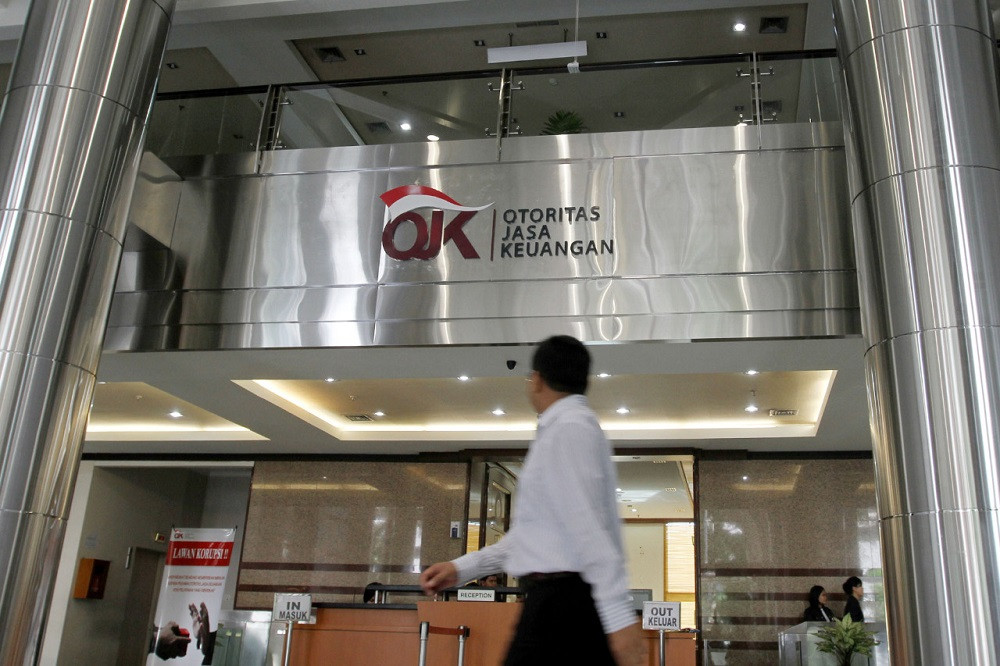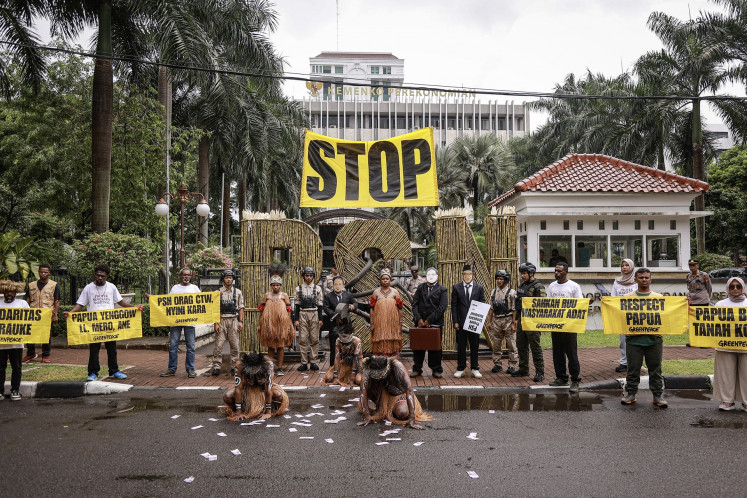Popular Reads
Top Results
Can't find what you're looking for?
View all search resultsPopular Reads
Top Results
Can't find what you're looking for?
View all search resultsRealigning bank oversight
Instead of depriving the OJK of its banking oversight mandate, the government should help the OJK realign the structure of its organization with its new responsibilities.
Change text size
Gift Premium Articles
to Anyone
T
he rationale behind the establishment of the Financial Services Authority (OJK) as the integrated supervisor of the whole financial service industry since early 2014 still applies today, and it has to do with the perceived complexity of the financial system and the increasing presence of large, complex financial companies with activities across various sectors.
But while the OJK is still developing its oversight responsibilities over banks and nonbank financial institutions, including insurance and multifinance companies, pension funds and the stock market, the government has announced its intention to return the banking supervision authority to Bank Indonesia, the central bank.
The initiative, which is a setback, is one of three important changes proposed in a bill for the amendment of the 1999 BI Law, which now tops the legislation program of the House of Representatives. The other two changes will expand BI’s role in enhancing economic growth but will compromise the political independence of its monetary authority.
True, the OJK has performed poorly in its integrated supervision of the financial system, as evident in the recent string of defaults in the financial industry due to corporate governance failings at insurance and multifinance companies, which reportedly caused more than US$3.5 billion in losses to investors. Even the Supreme Audit Agency recently warned the OJK over what it called inadequate supervision of eight banks.
There are big risks that these weaknesses could be magnified by the worsening economic situation caused by the coronavirus pandemic. But solving the lax supervision by restoring BI’s bank oversight authority may even weaken bank supervision at a time when financial conditions are quite fragile. How could the OJK bank supervisors work properly now that the threat of disbanding looms over their heads.
Instead of depriving the OJK of its banking oversight mandate, the government should help the OJK realign the structure of its organization with its new responsibilities. Moreover, the OJK’s poor performance should also partly be blamed on the OJK Law, which stipulates silo-based governance arrangements. These provisions have impeded its transition toward a fully integrated supervisory agency.
We don’t think returning bank supervision to BI will immediately improve the quality of oversight, because the central bank, which has thus far been responsible only for macroprudential supervision, will have to set up a new organization for microprudential oversight.
While the macroprudential approach focuses on the soundness and resilience of the financial system as a whole, the main objective of the microprudential supervisory process is to assess and ensure the safety and soundness of individual banks. This microprudential evaluation includes an assessment of an organization’s risk management systems, financial state and compliance with applicable laws and regulations through both on-site examination and inspections and off-site scrutiny and monitoring.
Banking supervision will remain heavily challenging even for BI in so far as the banking industry consists of more than 100 commercial banks and thousands of rural banks. BI will need a lot of time to build a capable supervisory team for both on-site examination and inspections and off-site monitoring. Bank supervisors need a clear mandate, adequate resources, operational independence, legal protection and strong governance structures, given the size and complexity of bank conglomeration.










